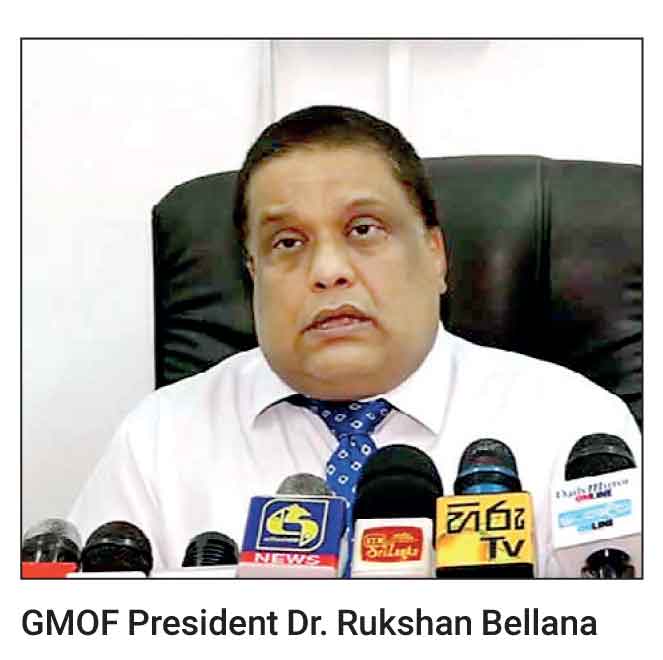Sunday Feb 22, 2026
Sunday Feb 22, 2026
Friday, 20 October 2023 01:59 - - {{hitsCtrl.values.hits}}
 The President of the Government Medical Officers Forum (GMOF), Dr. Rukshan Bellana, has warned that if the Government fails to take action against the fraud and corruption associated with the import of medicines into Sri Lanka, the country’s medical professionals may be compelled to demand the resignation of the entire government.
The President of the Government Medical Officers Forum (GMOF), Dr. Rukshan Bellana, has warned that if the Government fails to take action against the fraud and corruption associated with the import of medicines into Sri Lanka, the country’s medical professionals may be compelled to demand the resignation of the entire government.
Dr. Bellana made these remarks in response to revelations regarding fraud committed by a medicine importer involved in the manufacturing and distribution of human immunoglobulin IV and two other medicines to state-owned hospitals in the country.
Dr. Bellana pointed out that the approach to dealing with fraud and corruption appears to be characterised by a “take action if you can” attitude against such allegations.
“If the no confidence motion failed and the Government has expressed its confidence in the ongoing cycle of fraud and corruption, we are left with no choice but to call for the entire Government to step down,” he said.
He emphasised that the Government has not taken any actions against those responsible for the misconduct, and he criticised the Government and the Minister of Health for their failure to initiate any reform despite the wrongs committed by the ineffective administrators of the Health Sector.
The GMOF President also criticised the responses of the National Medicines Regulatory Authority (NMRA) since the revelations came to light, particularly their casual admission that the importer had forged documents related to the import of human immunoglobulin IV.
“It appears the public now must carry out the duties of the NMRA since it is failing in this task,” Bellana said. According to him, if those who oversee the NMRA continue to govern the country nonchalantly despite these allegations, it presents a significant problem for the nation.
He urged the government to take responsibility for maintaining discipline and efficiency in state institutions. He emphasised that even though the country is facing financial challenges, there are still many persons attempting to profit from the situation. “It is the innocent that are victimised by corruption,” he noted.
Dr. Bellana noted that the regulation of medicines was more effective before the establishment of the NMRA in 2015, and he raised questions about the necessity of the authority at this point.
He accused the NMRA of committing a grave injustice against the country by permitting the distribution of ineffective medicines within the country. Dr. Bellana urged all trade unions and civil society groups to unite and collaborate in addressing the corruption within the country’s health sector.